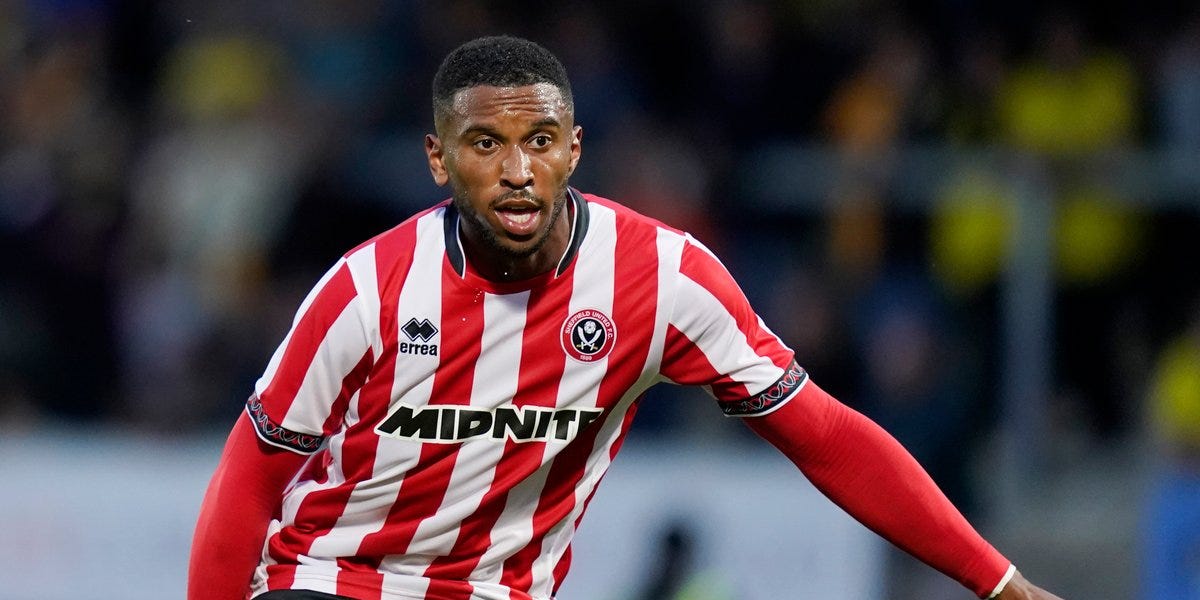After losing their first two games of the new campaign, Sheffield United find themselves at the wrong end of the Championship table, which is probably not what was expected after reaching the play-off final last season.
If the Blades want to mount another promotion challenge, they will have to rapidly get over the disappointment of losing that game, where the pain was maximised by Sunderland scoring the winning goal in injury time.
They had qualified for the play-offs by finishing third in the regular season in 2024/25, despite the EFL deducting two points after United were late in a number of payments to other clubs.
The club had actually led the table in December 2024, when a change in ownership took place, as Prince Abdullah managed to get a deal over the line after a number of failed negotiations.
in fairness, United had dodged a bullet when deals with two of the potential investors failed to materialise, as American businessman Henry Mauriss was subsequently jailed for wire fraud, while Nigerian tycoon Dozy Mmobuosi has been accused of fraud by the US Securities and Exchange Commission.
Therefore, fans would have probably been somewhat relieved when the club finally changed hands, as a takeover was completed by a US consortium, COH Sports United, fronted by businessmen Steven Rosen, founder of private equity firm Resilience Capital, and Helmy Eltoukhy, founder of biotech company Guardant Health.
That’s not the only important change to take place at Bramall Lane recently, as manager Chris Wilder was unceremoniously sacked after failing to gain promotion back to the Premier League.
As “Yes, Minister” used to say, this looks like a “courageous decision”, given Wilder’s excellent track record in the Championship, especially as his replacement, Rubén Sellés, is more accustomed to working with struggling clubs rather than promotion candidates.
Wilder’s departure has been attributed to the new owners’ recruitment plans, specifically placing more reliance on data and artificial intelligence, as they explained to supporters:
“The reality is that football has never been more competitive and it is changing all the time. Therefore, we are working tirelessly to become stronger in the crucial area of recruitment. We will do this by using data and analytics far more effectively to recruit the best and brightest talent.”
That’s all well and good, but United’s recruitment model to date does not seem to have identified much talent, as the only permanent arrivals this summer have been a couple of distinctly underwhelming players from the Bulgarian league (though the exciting Louie Barry has arrived from Aston Villa on loan).
The apparent lack of ambition from the new owners has led to a lot of concern among Blades fans, as there are still some important gaps in the squad that need to be filled by adequate replacements, especially as the club has lost midfielder Vini Souza, defender Anel Ahmedhodzic and striker Kieffer Moore.
The lack of signings is all the more puzzling, given that this is the last season when United will benefit from parachute payments from the Premier League. Consequently, if they fail to go up this year, their budget will be much smaller next season.
The new investors acquired the club after a dismal performance in the Premier League in 2023/24 resulted in immediate relegation back to the Championship. The Blades finish rock bottom in the table, only accumulating 16 points with just three victories, while they set a new record for goals conceded of 104.
In fairness, it could be argued that survival was always unlikely, given what the club described as “the significant challenges” that face newly promoted teams competing in the top tier of English football.
Our financial review will focus on the latest available accounts from that season, which help explain why United did so badly on the pitch.
Following promotion to the Premier League, United swung from a £31.5m loss before tax to a £3.9m profit, which the club described as “a significant recovery”.
In fact, the profit would have been even higher at £29.0m if the club had not booked £25.1m of exceptional impairment charges.
Revenue more than doubled from £64m to £128m, while profit from player sales increased from £4m to £19m, but this was partly offset by an increase in operating expenses, which rose £25m (25%) from £96m to £121m, while net interest payable doubled from £4m to £8m.
Profit after tax was smaller at £2.4m after a £1.5m tax charge.
The main driver of United’s revenue growth was broadcasting, which rose £71m from £43m to £114m, due to the far more lucrative Premier League TV deal. The increase would have been even higher if United had not benefited from a parachute payment in the Championship.
There was also good growth in match day, which increased £1.8m (19%) from £9.7m to £11.5m, though commercial was only slightly higher, up £0.2m (1%) from £11.6m to £11.8m.
Other operating income tripled from £0.2m to £0.6m.
United’s costs were obviously higher in the top flight, though the size of the increase was not that big, given the difference in quality compared to long-standing Premier League clubs.
Wages rose by £16m (32%) from £48m to £64m, while player amortisation was only up £2m (12%), rising from £18m to £20m. However, other expenses shot up £7m (27%) from £26m to £33m, with the club mentioning “increased investment in technology to assist in player recruitment and performance management”.
United’s £4m pre-tax profit was one of the better results in the Premier League in 2023/24, though some clubs posted even larger profits, especially Brighton £75m, Manchester City £74m, West Ham £57m and another relegated club, Luton Town £49m.




